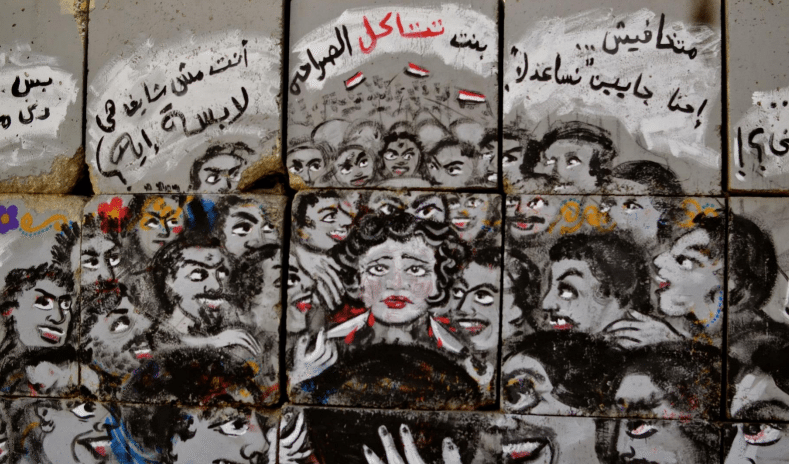Women and girls in Egypt face violence on a disturbing scale both at home and in public, including sexual mob attacks as well as torture in state custody.
‘Circles of hell’: Domestic, Public and State Violence Against Women in Egypt documents how despite some recent piecemeal reforms, shortfalls in Egyptian laws and entrenched impunity continue to foster a culture of routine sexual and gender-based violence in the country.
The Egyptian authorities have announced some token initiatives in recent months, including the introduction of a law criminalizing sexual harassment, however President Abdel Fattah al-Sisi’s public commitments to tackle the issue have not yet translated into a cohesive and sustained strategy. The authorities are still refusing to acknowledge the scale of the problem and dodging key reforms needed to effectively start tackling violence and engrained discriminatory attitudes towards women.
More than 99 percent of women and girls in Egypt interviewed for a survey published by UN Women in 2013 reported that they had experienced some form of sexual harassment. There have been a handful of convictions since a new law making sexual harassment a crime punishable by a minimum of one year in prison was introduced last year. However, the vast majority of women are still waiting for justice. Even when they seek help many have found themselves ignored or treated with contempt by police and the justice system.
Amnesty International is calling for the authorities to deliver a long-promised, long-delayed strategy on addressing violence against women.
Sexual mob attacks
Sexual assaults in public, particularly in the context of demonstrations around Cairo’s Tahrir Square, have soared in recent years. Sexual assaults and rapes have been carried out repeatedly in which women have been groped, stripped naked and dragged through the streets or beaten with sticks, knives and belts by violent mobs. The authorities have not shown due diligence to prevent the attacks, or to protect women from violence.
Egyptian legislation criminalizing rape and other sexual assault continues to fall short of international human rights standards. While courts have jailed a small number of men in connection with the attacks in Tahrir Square, many survivors are still waiting for justice.
Women in state custody
The briefing also documents the deplorable treatment of female prisoners while in state custody or upon arrest. Several women and girls said they were tortured or ill-treated by security forces on arrest, including being subjected to sexual violence.
In prison, female detainees are subjected to torture and ill-treatment with impunity. One prisoner was forced to lie in front of other prisoners before being whipped on her feet. Even pregnant women were found to have been treated in a degrading or inhuman manner, including being handcuffed during labor.
Domestic violence and discriminatory divorce laws
Nearly half of all women surveyed for the Ministry of Health said that they had experienced some form of domestic violence, in the last official figures on the issue. Survivors interviewed by Amnesty International described brutal physical and psychological abuse, saying that their spouses had beaten, whipped and burned them and in some cases locked them up inside the house against their will. They also spoke about how the legal system is failing them.
Many problems stem from prejudiced attitudes and are exacerbated by the discriminatory Egyptian personal status law and other provisions which put up unsurmountable obstacles for women to prove that their spouses have harmed them.
Support for survivors of sexual and gender-based violence is quasi-inexistent. Women who choose to report it are confronted with several obstacles, including a lack of interest by the security forces or prosecution, as well as inadequate criminal laws, with domestic violence and marital rape not explicitly criminalized. This leads many women subjected to domestic violence to suffer in silence.
A deeply discriminatory divorce system also often leaves women trapped in abusive relationships. While men may unilaterally divorce their wives without providing any justification, women must either forfeit their financial rights by accepting a “no-fault” khol’ divorce, or be prepared to fight a long and costly court battle to prove that their husband “harmed” them.

